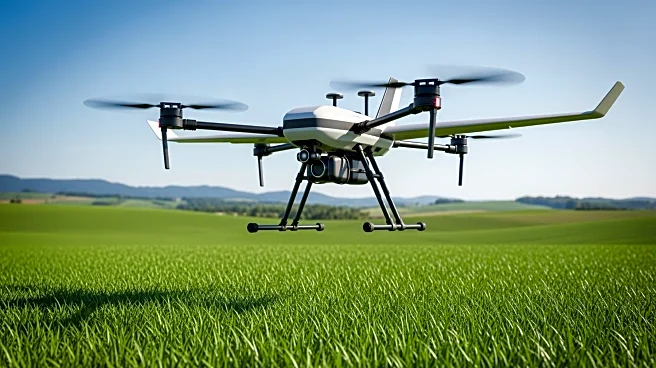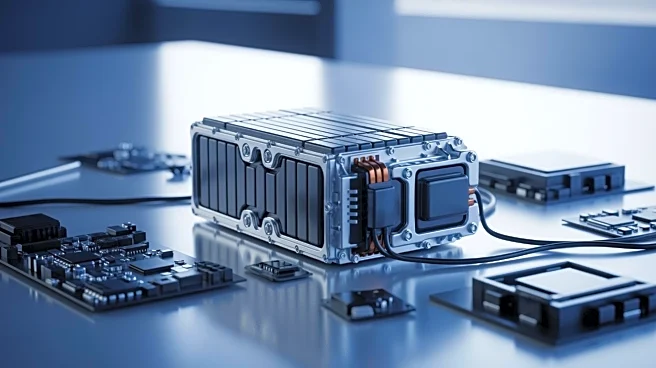What's Happening?
The agriculture drones market is expected to grow from $2.63 billion in 2025 to $10.76 billion by 2030, according to MarketsandMarkets. This growth is driven by increasing awareness among farmers about the benefits of drones in enhancing productivity
and resource efficiency. Drones provide real-time aerial data for crop monitoring, soil analysis, and precision spraying, reducing waste and increasing yield. The market is supported by advances in automation, imaging, and battery technology, along with favorable government initiatives and rising labor challenges. Small payload drones, capable of carrying up to 2 kilograms, are gaining traction due to their affordability and ease of use, particularly in smallholder farms.
Why It's Important?
The expansion of the agriculture drones market signifies a shift towards more sustainable and efficient farming practices. Drones offer precision agriculture solutions that can significantly improve crop yields and resource management, addressing challenges such as labor shortages and environmental impact. The adoption of drone technology in agriculture is expected to enhance food security and support the growing demand for high-quality produce. This trend is likely to benefit both large-scale and smallholder farms, contributing to the modernization of agricultural practices and the development of smart farming techniques.
What's Next?
The agriculture drones market is poised for further growth, with increased adoption expected in regions like Asia Pacific, where extensive agricultural land and proactive government initiatives are driving technological adoption. Countries such as China and India are advancing drone technology for agricultural applications, supported by policy incentives and educational programs for farmers. As the demand for precision farming tools rises, small payload drones are expected to play a key role in transforming traditional farming practices. The integration of drones in smart greenhouses is anticipated to grow, driven by the need for automation and precision control in high-value crop cultivation.
Beyond the Headlines
The rise of agriculture drones presents opportunities for agri-tech startups and innovation in drone-based analytics and AI integration. However, it also raises questions about the regulatory framework for drone usage in agriculture and the potential impact on traditional farming jobs. As drones become more prevalent, there may be discussions on data privacy and the ethical use of drone-collected information. Additionally, the environmental benefits of precision agriculture could contribute to broader sustainability goals in the agricultural sector.
















